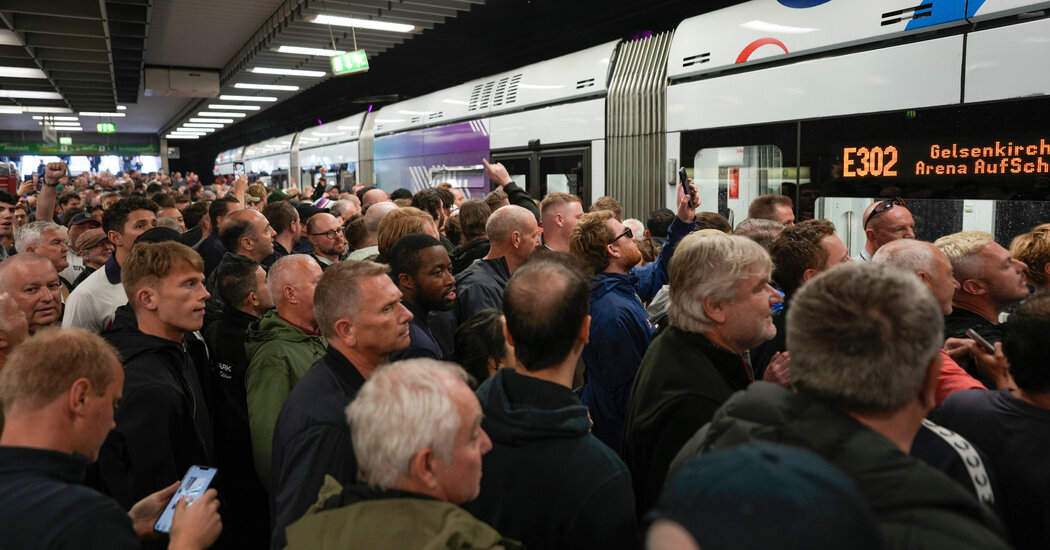In Germany, a Tournament Runs Smoothly, but the Trains Do Not

Niclas Füllkrug arrived early at the Adidas campus just outside Herzogenaurach, a picture-postcard town in Bavaria that was to host the German national team before this summer’s European soccer championships. The staff had been told that players would start arriving on a Monday morning, a few days before their opening game. But Füllkrug, one of the team’s forwards, turned up on Sunday night.
He had decided to make the 300-mile journey from his home in Hanover by high-speed train on Germany’s national railway carrier, Deutsche Bahn. The company was not just one of the tournament’s sponsors; it was also supposed to be a standard-bearer of the event’s ecological credentials.
But years of failure to invest in rolling stock, upgrade railways and digitalize signal boxes have made Deutsche Bahn notorious for delays and cancellations. In a country that has long prided itself on its efficiency and punctuality, Germans — as well as fans — had been warning for months that the problems might mar the tournament.
So Füllkrug was hardly surprised when he found himself crammed into a train car packed with high school students on a class trip. He spent the journey fielding their questions about life with the national team.
By the time he made it to Herzogenaurach, he had been traveling for several hours longer than expected, hardly ideal preparation for an elite athlete on the eve of a major tournament. Still, the delays had at least vindicated his decision to build in extra time. In Germany, as Füllkrug said, it pays to “have a bit of respect for Deutsche Bahn.”
Many of the hundreds of thousands of fans from across Europe — as well as a remarkable number from the United States — who have joined him in Germany will, after an often fraught opening week, doubtless understand what he means.